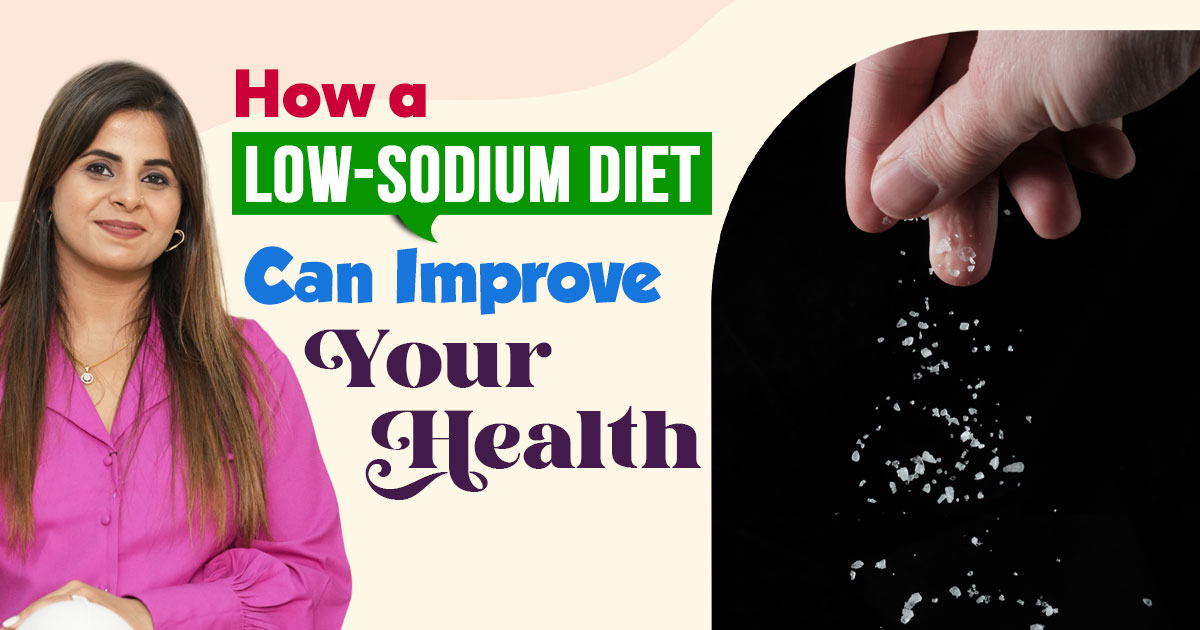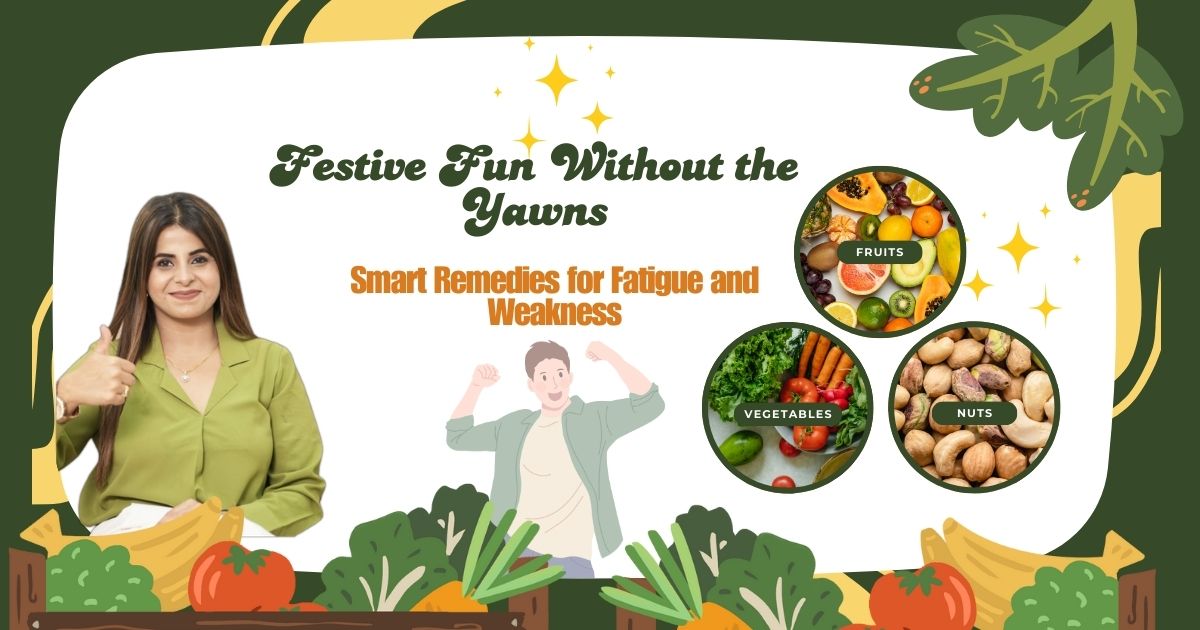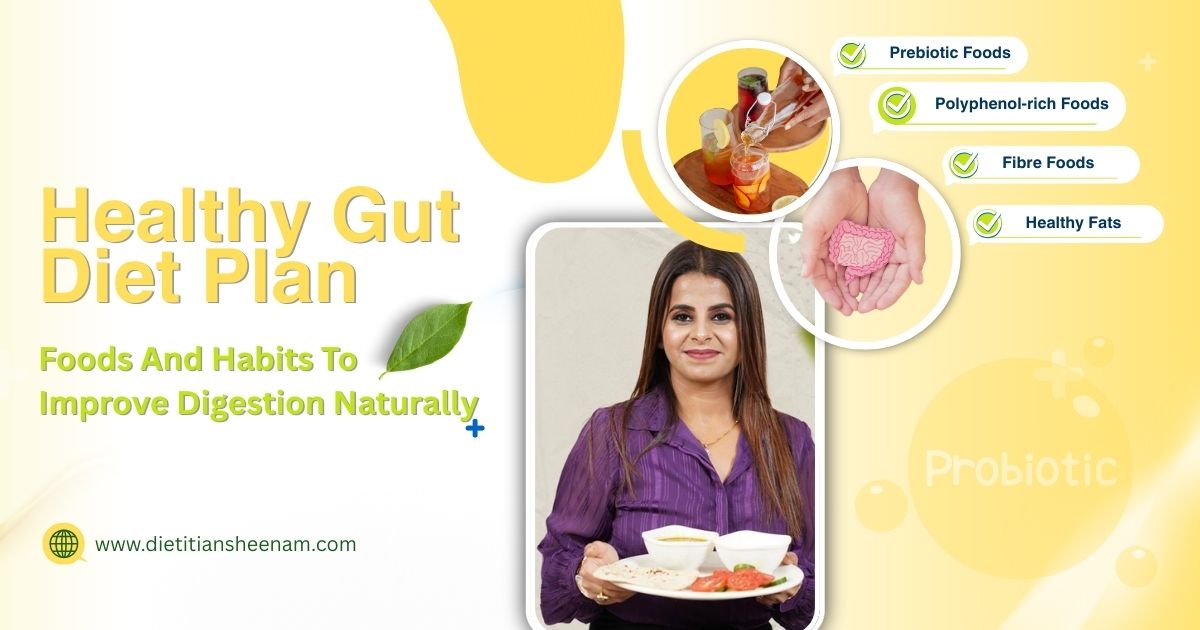Your eating habits have a significant impact on your overall health that surfaces over time. This happens due to the components that are found naturally in the food items or added to them to enhance the flavor. Salts are one of the important components that add flavor to your favorite dishes, but excessive sodium consumption can have a negative impact on your health. So, the dieticians recommend following a low-sodium diet to avoid getting ill.
High-sodium consumption is also linked to various strokes, blood pressure, heart and digestive diseases. Thus, it is crucial for you to maintain the balance of sodium in your body, which can be achieved with the help of the best dietician nearby.
One of the best ways to bring the sodium in your body to its adequate level is following a low-sodium diet. It not only keeps you safe from diseases but also helps you to stay healthy and active for a long time. Now, let us look at what a low-sodium diet is, its health benefits, and some food items that have lower sodium constraints.
What Is A Low-Sodium Diet?
There are several food items that you intake every day, such as chips, pizza, burgers, canned foods, condiments, etc., without considering their sodium content. Although these food items are mouth-watering and delicious to eat, they can surge the amount of sodium in your body. Thus, it is wise to avoid them as they can affect your gut, digestive, heart, and kidney health.
Instead, you should follow a low-sodium diet, which typically means limiting or lowering the consumption of sodium on a daily basis. Salts and baking soda are the primary sources of sodium in your daily food items; thus, you must be mindful of how much you intake.
The main goal of low-sodium diets is to help you manage or prevent your overall health conditions, including high blood pressure, heart disease, stroke, kidney disease, and fluid retention.
Benefits Of A Low-Sodium Diet
Including low-sodium foods in your daily diet charts can make a remarkable change in your overall health. Not only do the inner organs function smoothly, but you can feel the change in your appearance, too. Additionally, low-sodium food items are rich in nutrients; you feel energetic and free from chronic diseases. Other benefits of low-sodium diets are:
1. Heart Health Benefits
- A low-sodium diet is good for your heart as it helps to lower blood pressure.
- Reduces the risk of heart strokes, blockages, and other heart diseases.
- Promotes blood pumping to meet the body’s needs, preventing heart failures.
- Decreased the chances of life-threatening abnormal heart rhythms (Cardiac Arrhythmias).
2. Reduces Hypertension
- Low-sodium foods maintain the body fluid that increases blood volume.
- It lowers the pressure on your blood vessel walls.
- Reduced sodium intake dismisses the chances of strokes, vision loss, and dementia.
Also Read: Hypertension diet chart
3. Kidney Health Benefits
- It promotes kidney health as low-sodium foods help to regulate the proper functioning of the organs.
- Reduces the risk of kidney failure, dialysis, and transplant.
- A low-sodium diet can slow down the progression if you are already suffering from a kidney disease.
4. Body Functional Benefits
- Helps you in your weight loss journey.
- Limiting sodium intake can reduce the risk of stomach cancer.
- It promotes bone health as a low-sodium diet reduces the excretion of calcium in the urine.
- Prevents strokes that can occur when the blood supply to the brain is interrupted.
- Reduces the risk of digestive diseases.
How Can I Reduce Sodium Level In My Diet?
- Limit the consumption of processed food and eat more fresh fruits, vegetables, and meat.
- Prefer the Mediterranean diet as it has high nutritional value and is low in sodium.
- Make your food seasonings, or consider limiting the use of condiments.
- Cook your food with low or no salt and add herbs and spices to them.
- Check the label on the packages for sodium content before buying.
- Ask the restaurants to put less salt when you eat out.
- Rinse the canned foods before cooking to reduce low sodium.
- Always eat in smaller portions at home or in the restaurant.
- Limit fast-food consumption and prefer a homemade low-sodium diet.
- Avoid the consumption of alcohol and cold drinks.
Top Low-Sodium Foods For Your Diet
For a healthy and well-developed body, you need to take in around 200 to 500 mg of sodium every day. There are some food items that are naturally low in sodium; thus, you must definitely include them in your diet. However, if you have any existing dietary restrictions, then you must consult your dietician before taking any of the listed food items.
- Fruits: Apples, oranges, bananas, berries, watermelon, grapefruit, pears, kiwi, grapes, and pineapple.
- Vegetables: Spinach, broccoli, carrots, bell peppers, cauliflower, cabbage, tomatoes, zucchini, and Brussels sprouts.
- Nuts and Seeds: Almonds, walnuts, pistachios, chia seeds, flax seeds, pumpkin seeds, sesame seeds, and sunflower seeds.
- Grains: Quinoa, sorghum, brown rice, whole grain pasta, and oats.
- Dairy Products: Low-sodium cottage cheese, unsweetened almond milk, unsalted butter, swiss cheese, kefir, and yogurt.
- Protein-rich Foods: Chicken breast, turkey breast, salmon, tuna, lentils, chickpeas, tofu, and Greek yogurt.
- Healthy Fats-Rich Food: Olive oil, avocado oil, sardines, and nut butter.
Why Should You Care about Balanced Sodium Level In Your Body?
A low-sodium diet can make you healthy, but sometimes, it can lead to being sodium-deficit. Sodium deficiency in your blood can cause Hyponatremia, and muscle weakness, spasms, cramps, confusion, headache, vomiting, and nausea are common symptoms. Thus, you must maintain an adequate level of sodium in your body.
You can have high-sodium food items once in a while to keep up with the sodium level in the blood. However, you must keep track of your consumption portion to avoid overeating.
Final Thoughts – Start Your Journey To A Healthier Lifestyle Today
Sodium can make your food taste delicious but also can affect your health negatively if consumed too much. It is essential to maintain a sodium balance in your blood to avoid devastating health conditions. Thus, you must lower your high sodium intake and follow a diet that has low sodium.
There are several natural food items that have low-sodium constraints, so you must make sure to include them in your daily diet. It will not only reduce the risk of life-threatening diseases like cardiac arrest and kidney or digestive diseases but also enhance energy levels and overall health.However, before you make any changes to your diet plan, it is wise to consult with the best dietitian in Punjab so that you can fully leverage the benefits of a low-sodium diet.





